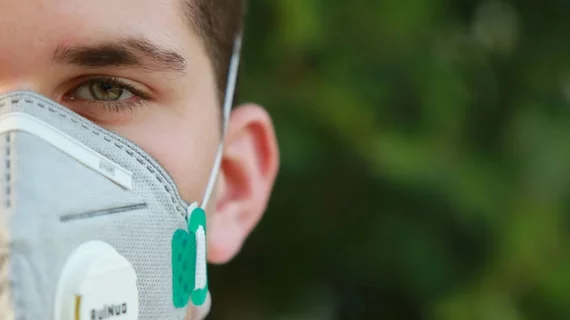The ongoing COVID-19 pandemic has changed patient care all over the world, leading some healthcare providers overworked and understaffed while others face significant losses in revenue. One side effect of this unprecedented time is that many fourth-year medical students are being asked to join the pandemic’s front lines early—and it’s a practice the American Heart Association (AHA) wants to end.
Representatives of the AHA shared their thoughts on this topic in Circulation. The full text of the group’s statement can be read here.
“Dispatching doctors-in-training to perform patient care outside their clinical competencies is a risk,” wrote lead author AHA President Robert A. Harrington, MD, an interventional cardiologist at Stanford University, and colleagues. “This is further complicated by the contagion of COVID-19, evolving knowledge about the virus and its behavior in the environment, and a critical shortage of personal protective equipment (PPE). If the outbreak in China is any indication, healthcare workers are three times more likely than the general population to contract the disease and can be vectors of transmission.”
In the commentary, Harrington et al. called for all trainee programs “to immediately abandon the practices of relaxing exam requirements, accelerating graduation and dispatching newly minted residents and fellows to the front lines.”
Longtime AHA member Mariell Jessup, MD, who currently serves as the organization’s chief science and medical officer, was quoted in the commentary, noting that the safety of these trainees must be a top priority.
“All medical professionals want to help, but fellows and residents are being asked to do things they are not fully trained to do and that take them longer to perform than attending physicians,” Jessup said. “At the very least, we need to ensure they are protected with proper PPE.”
Trainees are being fast-tracked all over the world, the authors noted, including Europe and Canada. But until PPE is finally readily available for all healthcare providers, and proper training can be guaranteed, the AHA stands by its belief that this is not the best way to address the pandemic.
“We will continue supporting bipartisan, coordinated, government-backed efforts and private-public initiatives that ensure this nation’s frontline healthcare workers are protected as they labor to save lives,” the authors concluded. “Just as the youth embody our hopes for tomorrow, medical trainees hold the health of generations to come in their hands. We must make protecting them a priority.”

